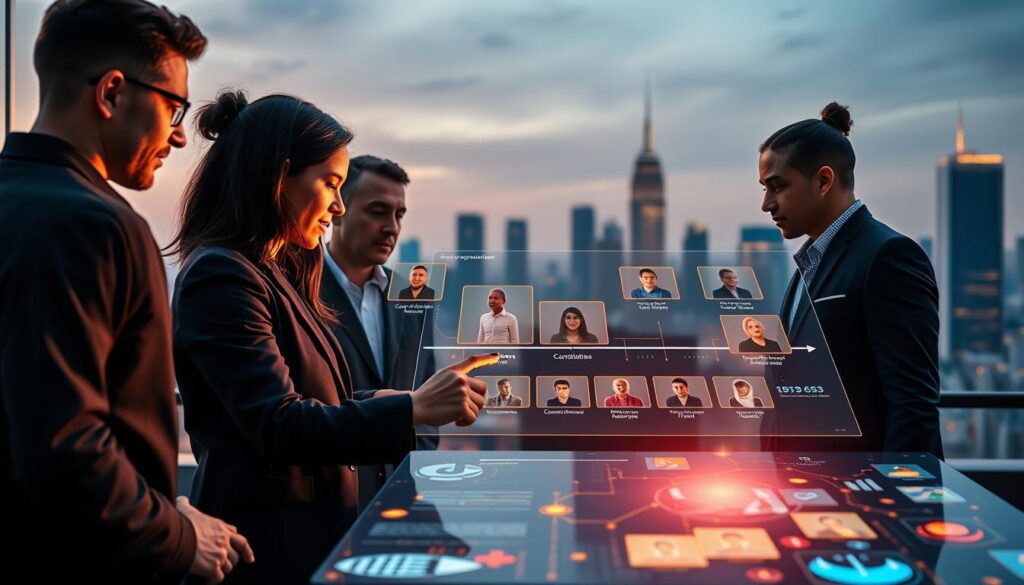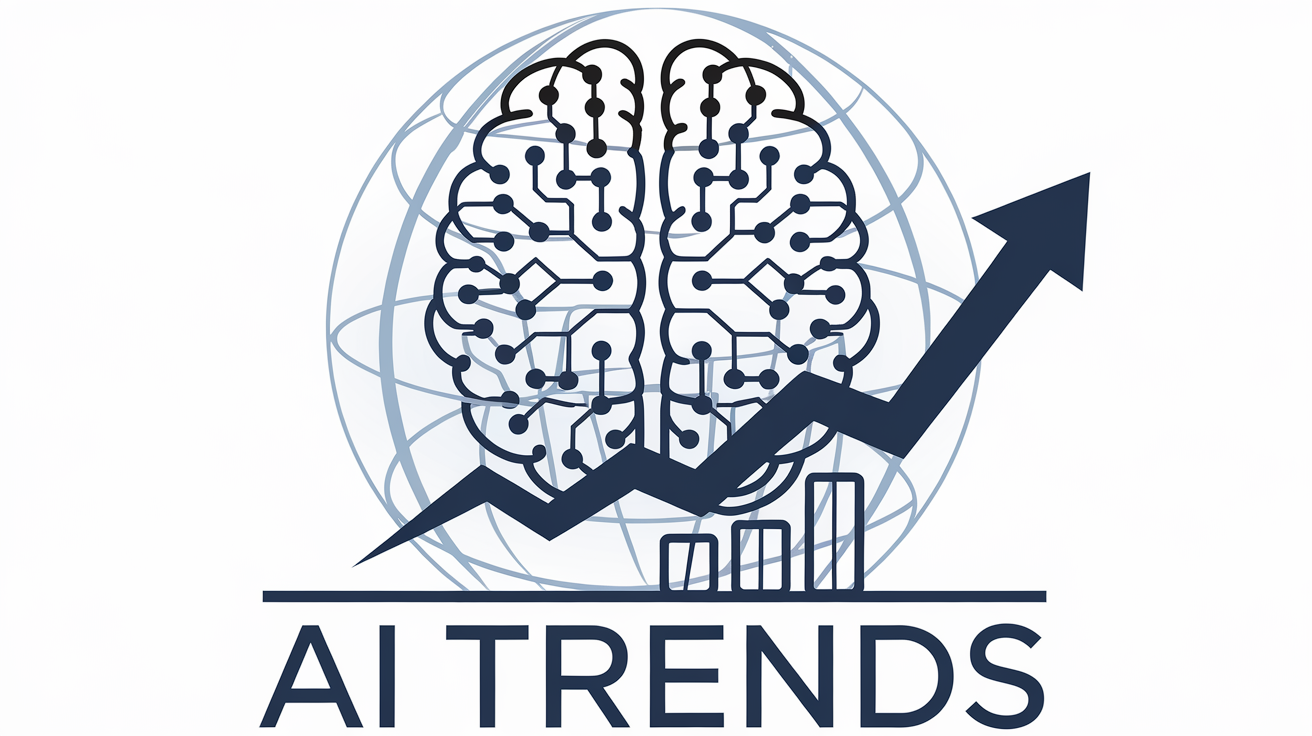Today’s workplaces are changing fast, and so are the tools that manage them. Artificial intelligence in HR is more than just a buzzword; it’s a game-changer. Companies like Google and IBM use ai in human resources to make hiring easier, keep employees longer, and make better decisions. This change is not optional; it’s necessary. With AI, HR teams can focus on what’s most important: people.
Imagine cutting hours of paperwork to just seconds. Picture knowing who might leave before they do. These are real possibilities with AI. This article will show how HR departments can get ahead by using these tools. You’ll learn how AI automates tasks, finds the best talent, and makes workplaces happier.
Table of Contents
ToggleKey Takeaways
- AI in HR automates repetitive work, freeing time for strategic decisions.
- Tools like predictive analytics reduce bias in hiring and promotions.
- Companies using AI see faster recruitment and higher employee satisfaction.
- AI-driven platforms help identify skills gaps and train teams effectively.
- Implementing AI aligns with modern workforce trends and industry standards.
Understanding AI in Human Resources: The Digital Transformation
Modern HR departments are going through a big change. AI tools now handle tasks like payroll and performance reviews. This change is not just about being faster. It’s about enhancing hr processes with ai to make workplaces better in today’s fast world.
How Artificial Intelligence is Reshaping HR Functions
Imagine HR teams focusing on strategy, not just doing tasks. AI does things like screening resumes and detecting burnout. For example, Unilever uses AI chatbots to help with hiring, making it 60% faster.
These tools don’t replace people. They enhance how decisions are made by finding patterns humans might miss.
Key Technologies Driving HR Innovation
- Natural Language Processing (NLP): Reads and categorizes employee feedback surveys.
- Machine Learning (ML): Predicts which employees might leave, allowing proactive retention strategies.
- Predictive Analytics: Forecasts skill gaps to align training with business goals.
- Computer Vision: Verifies attendance via facial recognition in some systems.
These tools turn data into useful insights. They bring benefits of ai in human resources like saving money and better talent management.
The Evolution from Traditional to AI-Enhanced HR
Years ago, HR used spreadsheets and guesses. Now, cloud-based platforms track engagement in real-time. AI goes further by predicting who might be great leaders.
This change is more than just new technology. It’s about using data to make better decisions. Employees get plans tailored to them, and leaders see clearer trends in their teams.
Strategic Applications of AI Across HR Departments
AI is changing HR’s role from just doing tasks to making big decisions. Companies like IBM and SAP SuccessFactors use AI to make HR choices that match business goals. For example, compensation teams quickly check market data to set fair salaries.
Compliance teams spot risks right away. Workforce planning tools predict when skills might be needed, helping companies plan ahead.

- Compensation: AI benchmarks salaries against industry standards
- Compliance: Algorithms detect wage disparities or policy breaches
- Learning: Platforms like Degreed curate personalized training paths
- Retention: Predictive models identify at-risk employees early
“AI turns HR into a data-driven partner, not just a support team.” — SAP SuccessFactors 2023 Report
These systems work together as an ecosystem. For example, predictive analytics in talent acquisition help with succession planning. Engagement surveys guide leadership development.
This connected approach helps companies like Walmart reduce turnover by 15% with AI insights. By using ai-driven talent management, HR leaders turn data into strategies that drive growth and innovation.
Streamlining Recruitment with Machine Learning
Today’s recruitment teams use machine learning to make hiring faster and fairer. These tools help HR professionals focus on the human side of hiring.
AI-Powered Candidate Screening and Matching
Imagine reviewing 1,000 resumes in just minutes. Tools like HireVue and Pymetrics make this possible. They use algorithms to find the best candidates based on skills and experience.
One company, Unilever, reduced hiring time by 70% with AI. This lets recruiters spend more time with top candidates.
- Automated resume parsing sorts candidates based on job needs.
- Natural language processing (NLP) finds hidden skill matches.

Eliminating Bias in the Hiring Process
“AI can’t fix human bias alone, but it can highlight where bias exists.” – Forbes HR Council Report
AI chatbots for HR now focus on qualifications alone. Tools like TalentLyft hide candidate details to reduce bias. These tools can cut demographic disparities by up to 40% when used right.
Predictive Analytics for Talent Acquisition
Now, predictive models can predict candidate success. IBM’s Watson Talent Acquisition uses behavioral data for this. Companies using it see a 30% boost in first-year performance.
Metrics tracked include past job tenure, adaptability, and cultural fit.
- Past job tenure
- Adaptability scores
- Cultural fit indicators
Enhancing Candidate Experience with AI Chatbots
Chatbots like Mya Systems are always available to help. They answer questions and send interview reminders. A 2023 Gartner study found a 25% increase in candidate satisfaction with AI chatbots.
These tools also cut recruiter workload by 80%.
Machine learning recruitment empowers hiring teams. It frees them to focus on building relationships that drive success.
Employee Engagement and Retention: The AI Advantage
Imagine a workplace where growth matches personal goals. AI tools are making this dream come true. They analyze skills, interests, and career paths to keep employees motivated and connected.
Personalized Learning and Development Platforms
Companies like SAP SuccessFactors use AI to match employee skills with business needs. Platforms like Degreed offer courses that fit individual learning styles. This approach cuts training gaps by 30% or more.
One manufacturing firm saw a 45% increase in course completion after using this method.
AI-Driven Performance Management Systems
Annual reviews are being replaced by continuous feedback. Tools like Lattice provide real-time insights through sentiment analysis. This leads to:
- Monthly progress snapshots
- Goal alignment checks
- Recognition of achievements as they happen
Managers get clarity without micromanaging, building trust through transparency.
Predictive Analytics for Reducing Turnover
“Employees flagged as high flight risk by AI systems are 6x more likely to leave if unaddressed.” – 2023 HR Tech Report
Platforms like Visier analyze 50+ data points to spot risks early. A retail giant cut turnover in high-turnover roles by 22% using this method. Ethical safeguards ensure data usage respects employee privacy, keeping trust through open communication.
By automating tasks, HR teams can focus on building culture. The result? Workplaces where technology boosts human potential, not just processes.
Implementing AI in Your HR Strategy: Practical Steps
First, look at your current HR processes and data setup. Check your team’s skills and set achievable goals. Start with a few tools and grow as needed.
Make a strong case for AI by showing its value. Talk about how it can save money and make things more efficient. This will help get your leaders on board.
Choose AI tools that solve real HR problems. Look at options like SAP SuccessFactors or Workday. They offer hr analytics automation that fits with what you already use. Compare them based on how well they can grow with you.
Good data is essential. Clean up your data and make plans for keeping it up to date. Regular checks and training on data entry will help keep your insights accurate.
Be open about the changes AI will bring. Show how it works with, not against, your team’s skills. Training and listening to feedback will help everyone adjust.
Start with simple reports and then move to more advanced analytics. Use dashboards to see how you’re doing and improve your plans.
Conclusion: Embracing the Future of HR with Artificial Intelligence
The use of AI in human resources is changing how companies manage their teams. AI automates tasks like checking resumes or tracking performance. This lets HR teams focus on big goals.
AI tools like predictive analytics and learning platforms help keep talent and boost work output. Companies like IBM and SAP have seen onboarding times drop and retention rates rise with AI.
Some worry AI will take over HR jobs. But, AI actually makes human skills better, not worse. Chatbots handle simple questions, so HR can work on more complex tasks like building culture or developing leaders.
Starting small is key. Try AI chatbots for job seekers or predictive analytics for hiring trends. Tools like HireVue or Pymetrics are good starting points. Each step builds confidence and shows new ways to grow.
Companies that use AI tools are ahead of the game. AI brings faster decisions and better work experiences, giving long-term benefits. The journey needs patience, but the rewards in efficiency and innovation are worth it. Start using AI in HR today to improve your strategy.
FAQ
How is AI used in human resources?
AI helps HR with tasks like hiring, keeping employees happy, and managing performance. It uses smart algorithms and data analysis to help HR make better choices. This makes HR work more efficient and strategic.
What are the benefits of implementing AI in HR?
AI in HR saves time on routine tasks, finds better candidates, and makes work more engaging. It also helps keep employees by predicting who might leave. AI tools let HR teams plan more and do less repetitive work.
How do AI chatbots enhance the recruitment process?
AI chatbots help candidates 24/7 by answering questions and setting up interviews. They keep candidates interested and help HR focus on more important tasks.
Can AI help eliminate bias in hiring?
Yes, AI can reduce bias in hiring by focusing on skills and experience. It ignores things like names or where someone went to school. This makes hiring fairer.
What role does HR analytics play in AI-driven talent management?
HR analytics is key in AI-driven talent management. It gives insights for hiring, evaluating, and growing employees. AI analytics help HR spot trends and predict who might leave, guiding better decisions.
How can organizations ensure the successful implementation of AI in HR?
To use AI in HR well, first check your current processes and data quality. Pick AI tools that fit your needs. Also, plan how to help employees adjust to AI changes.
What technologies are driving innovation in HR?
New HR tech includes better chatbots, machine learning for predictions, and tools for automating HR tasks. These help make HR work smoother and smarter.
You may also like: 10 Powerful AI Tools for Business Automation That Will Transform Your Workflow

